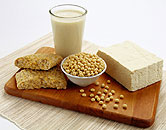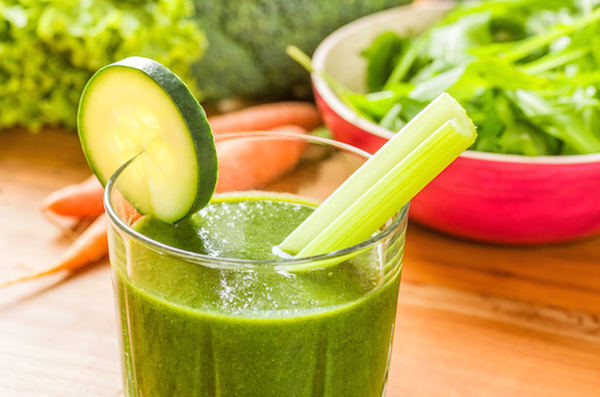
MONDAY, March 14 (HealthDay News) — Women may be less likely to develop premenstrual syndrome if they eat a diet rich in two types of B vitamins, a new study suggests.
Women who consumed thiamine (B1) and riboflavin (B2) in their food significantly reduced their risk of PMS, the data suggested. Thiamine is found in fortified cereals, whole grains, beans and nuts, and researchers said eating two to three servings of thiamine-rich foods a day appeared to thwart PMS.
Riboflavin is available in milk, eggs, meat and green vegetables. Eating one to two servings of fortified cereal or six to seven servings of foods such as spinach, cow or soy milk, or red meat seemed to have a beneficial effect, the researchers found.
The study, led by Dr. Patricia O. Chocano-Bedoya of the University of Massachusetts, Amherst, followed more than 3,000 women participating in the U.S. Nurses Health Study II. All of the women were free of PMS at the start of the study, and they filled out dietary questionnaires three times between 1991 and 1999.
“We observed a significantly lower risk of PMS in women with high intakes of thiamine and riboflavin from food sources only,” the authors concluded.
Specifically, women with the highest riboflavin intake had a 35 percent lower risk of developing the physical and emotional symptoms of PMS symptoms compared with those who consumed the least, the researchers found.
According to background information in the study, thiamine and riboflavin may have an impact on brain neurotransmitters such as serotonin and dopamine, which have been linked to PMS.
However, the study, published recently online in the American Journal of Clinical Nutrition, doesn’t actually prove that these vitamins will prevent PMS. Other factors could play a role as well, the researchers said.
PMS is a cluster of symptoms that can range from mild to severe. A woman with PMS may experience physical or emotional changes several days before the start of her period. These may include swollen, tender breasts; acne; joint pain; memory problems; anxiety and/or depression, and for some women these changes affect their quality of life.
Intake of vitamin-B supplements did not appear to influence development of PMS. Nor did consumption of niacin, vitamin B-6, folate, and vitamin B-12 in foods, the researchers said.
The authors said additional research should further explore the link between these two B vitamins and the development or treatment of PMS.
More information
The American Congress of Obstetricians and Gynecologists has more about PMS.

